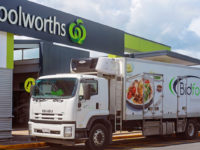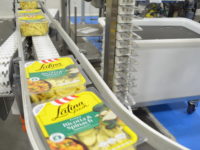
As the COVID-19 outbreak prompts more and more consumers to stockpile groceries, General Mills Australia is changing tack to better manage the “unprecedented spike” in demand.
The food manufacturer has simplified its line for the short term, in collaboration with customers, to ensure access to their products during the busy period.
“We’ve temporarily delisted certain SKUs to reduce the complexity and workload in the plant. By streamlining product, removing changeovers and increasing productivity this has put more security into the flow of production, to keep the supermarket shelves stocked as much as possible,” General Mills Australia supply chain director Michele Canepa told Inside FMCG.
Old El Paso is GM’s most in demand brand at the moment, followed by Latina Fresh and Betty Crocker.
The company’s Rooty Hill plant in NSW, which is responsible for the production of Latina Fresh pasta and Old El Paso Mexican products, is operating at full capacity, even with 30 per cent of the plant working from home, Canepa said.
“It’s not a 24/7 plant. There are cleaning schedules that need to run, usually on the weekend, so we have stepped up the 24 hours 5 days to 24 hours 6 days to run additional shifts across the weekend,” he said.
In a bid to keep staff motivated during the incredibly busy period, they have introduced a daily bonus for plant employees to recognise their additional efforts.
“We are rewarding our people at the plant working on production lines with bonuses based on the amount of days they work there.”
Where possible, General Mills employees are working from home and flexible work schedules have been put in place to support employees with childcare arrangements.
The food manufacturer has also significantly stepped up safety procedures at Rooty Hill, both in terms of preventative measures as well as reactive measures, in the event that they experience a case of COVID-19 among the team.
“For food manufacturing there are already strict protocols in place which is fortunate, even so we have stepped these up to have more cleaning that prevents bacteria or virus.”
Preventive measures include temperature checks for all people on site, social distancing wherever possible and increased PPE availability.
There is also an additional two weeks paid sick leave for employees in quarantine due to COVID-19 or where there is a potential medical risk.
Staff from head office across Australia and New Zealand have been sending notes of gratitude to the operations team through short videos, photos and home-made “thank you” posters to recognise the frontline heroes.
“We are grateful that with these challenging conditions, to see that at Rooty Hill our engagement and productivity is very high. Our lines are running better than ever, our throughput is better than ever with no absenteeism,” Canepa said.
While factory staff have been doubling down on food production, Canepa told Inside FMCG that casual workers will help fill any gaps.
“Our skilled labour is still 100% in place. However we are ensuring we have back up planning towards casual workers so we can be ready for any level of absenteeism as a contingency. We have increased the temp workforce where needed, for example, on weekend production,” he said.
Focus shifts to locally-produced brands as Europe takes a hit
Betty Crocker, Nature Valley, Fibre One and Haagen Dazs ice cream are sourced from GM’s large regional manufacturing plants, predominantly in Europe.
While the European plants have experienced some absenteeism, Canepa said they are all continuing to produce. The company has put contingency plans in place to reduce complexity and move focus to locally-produced brands to compensate.
While ocean freight has been impacted by availability of containers, Canepa said the business has moved to direct shipments to secure capacity for the next six months.
“We are acting fast and have a strong partnership on logistics providers and carriers,” he said.
“We are working locally to manage the imports, for example, the Port of Queensland were originally restricted, they are now released, but we are also diverting to other ports in NSW and VIC.”
Locally, road transport in Australia is stretched but Canepa is confident in the ability of the company’s strong transport partners.
“As long as food supply chain remains an essential service and there is free movement of food going around we will be able to keep feeding our consumers – this stays as a priority,” Canepa said
“We are so grateful that all of our stakeholders have stepped up to this challenge – our people first and foremost at the plant and adjusting to working from home, and then all links in our supply chain, from the plants in our broader General Mills network, to logistics and warehousing, to our customers – they are all stepping up to navigate these difficult and challenging times with us and with their support we can keep running and getting our products to supermarkets for our consumers.”
















